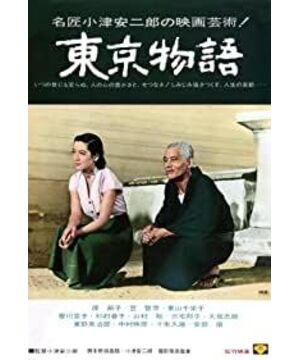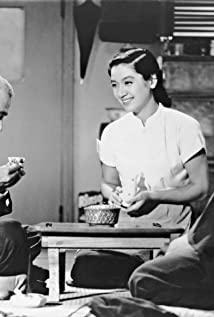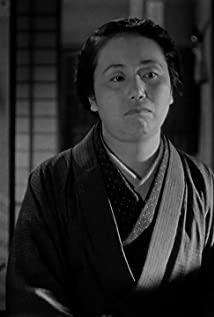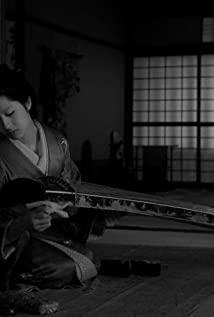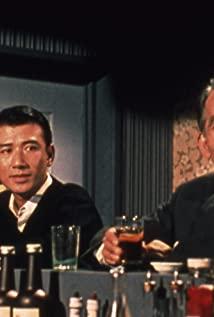I think our generation has moved further and further away from Ozu's films. A single-family family of three has become commonplace for us, and it is difficult to evoke our nostalgia for the big family lifestyle. However, the slowly flowing footage, the sense of alienation between the parents and the grown-up children, will surely cause everyone, especially those who are away from their parents, to feel sad and sigh.
The father and mother in the film seem to be typical oriental parents. They are tolerant and tolerant. They have traveled thousands of miles from their hometowns to Tokyo. Even though they are greeted coldly by their children, they still smile slightly - it doesn't matter. When I first arrived in Tokyo, my mother said, "I didn't expect Tokyo to be so close." When I was about to leave, my mother said, "Tokyo is too far. If there is something, you don't have to come back." The mother who is always contradicting herself , but it is the eternal appearance in memory. The reason why Ozu's films are moving is because they capture the ordinary but deeply moving details of daily life. His lens is like a long flowing eye, quietly staring at life, naturally smooth and full of deep meaning.
The eldest son who is slightly indifferent, the eldest daughter who is stingy, the second daughter-in-law who is gentle and kind, and the youngest daughter who is young and childish. I think each of us will have a few relatives who have their shadow more or less in our family. No one is really bad-hearted, just worldly. Because of the worldly world, even if my parents stay upstairs for a week, I can't find time to take them around. Because of the secular world, for the sake of my own comfort, I sent my parents to Hot Sea to soak in hot springs, and I felt complacent. Because of the world, there are so many reasons to focus on your own life and put your parents at the bottom of the priority list. That's why there is a dialogue between the youngest daughter, Kyoko, and the second daughter-in-law, Noriko, at the end of the film - very much like the dialogue between us and the world in the past:
- They are too selfish. just left.
- No way, they go back to work.
- Don't you have a job too? They are too selfish.
--listen to me……
——My mother wants her things as a souvenir when she is buried. I feel so sorry for the poor mother. Outsiders still have feelings, and flesh and blood should not be like this.
—But, Kyoko, I thought the same thing when you were your age. But as children grow up, they will gradually move away from their parents. Sister Fan's age is different from her parents. She has her own life. It's not because she has bad intentions, everyone cares about their own lives.
--real? But I would never let myself be like that. Otherwise, there will be too much indifference between parents and children.
--good. But everyone will, gradually, become like this.
- You will too?
——Yes, although I don’t want to, it will still be like that.
- The world is so frustrating.
- Yes, there are too many unpleasant things.
"But I will never let myself become like that." I don't know how many people who witnessed annoying adults when they were young and secretly swore that I would never become like this. But, in the end, how many people resisted the gravity of the world, and how many people drifted along in numbness. Maybe you can find many reasons to explain your worldliness, but worldliness is worldliness, don't argue. You also understand that this kind of thing is understandable, but unforgivable. Maybe in a few years, I will lose Kyoko's decisiveness, and replace it with Noriko's tone - a soft sigh with helplessness and understanding, to excuse our sinking into the world.
That's what good movies are, and not a single line is superfluous. It is worth watching over and over again, thinking about it, and chewing every line. There are too many touching scenes in "Tokyo Story" - when a mother takes her little grandson whom she seldom meets to play on the riverbank, she asks him what he wants to do when he grows up, but suddenly realizes that his time is short. Momentary loneliness; Mom and Dad couldn't sleep in a lively and happy hotel at midnight, and the next day sat alone on the coast looking at the sea, sighing, alas, this is where young people come... After Tokyo, Atami also watched, It's time to go home. The feeling of alienation from the world in old age can't help but feel sad; after my mother died, my father sat in the place where the film appeared at the beginning, still smiling so faintly, talking to the neighbors - I was too careless, too early. Knowing this, I should have been nicer to her when she was alive... Living alone, the days are very long. After the neighbor left, with a light sigh, he slowly cast his eyes into the distance, only the palm fan in his hand was still shaking, just like when his mother was there. Life still has to go on. Presumably Noriko understood this on the train back to Tokyo.
The world is so frustrating, we always need a good movie that is warm but tingling to peel off the cocoon that has been worn out by life on the soul.
View more about Tokyo Story reviews


